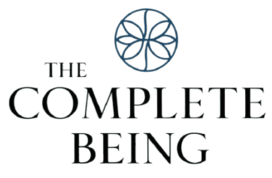Balancing faith with the demands of modern life can feel like an ongoing struggle. Between work, family obligations, personal ambitions, and societal expectations, it is easy to feel pulled in different directions. Many believers find themselves exhausted, wondering if they are doing enough spiritually while also trying to keep up with life’s demands. The good news is that faith and daily responsibilities are not meant to be in competition; rather, they should work together in alignment.
When God is at the center of our lives, everything else falls into place. True balance comes not from dividing time evenly but from integrating faith into every aspect of life. By prioritizing God, managing time intentionally, incorporating faith into daily activities, honoring rest, making wise commitments, building community, and trusting God fully, we can experience both spiritual growth and personal fulfillment. Here’s how to achieve that balance effectively.
Prioritize God Above All Else
The foundation of a balanced life starts with putting God first. Matthew 6:33 reminds us to “seek first the kingdom of God and His righteousness, and all these things will be added to you.” This means making our relationship with God the central focus, ensuring that faith is not an afterthought but a guiding force in everything we do.
One way to prioritize God is by starting each day with prayer and scripture. Even a few moments of intentional connection with God can set a positive tone for the day. Another way is to invite God into decision-making, whether at work, in family matters, or in personal choices. When faith becomes the foundation of daily life, everything else aligns more naturally.
Mastering Intentional Time Management
Time is one of the most valuable resources we have, and managing it well is crucial for balancing faith with modern responsibilities. Instead of waiting for the “perfect time” to pray or study the Bible, schedule it just as you would an important meeting or appointment. Set aside specific times for spiritual activities such as prayer, Bible study, worship, and reflection. Even during a busy day, small adjustments like listening to faith-based podcasts while commuting or incorporating scripture into daily conversations can help keep faith at the forefront.
Eliminating time-wasters is also key. Social media, excessive screen time, and unnecessary distractions often consume valuable hours that could be spent nurturing our faith and relationships. By being intentional with time, it becomes easier to maintain a strong spiritual foundation without feeling overwhelmed.
Integrate Faith into Daily Life
Living out faith should not be limited to church services or morning devotions; it should be woven into everyday life. Colossians 3:23 reminds us, “Whatever you do, work at it with all your heart, as working for the Lord, not for human masters.” This means bringing faith into work, relationships, and decision-making.
One way to do this is by demonstrating Christlike values such as kindness, patience, integrity, and humility in the workplace. Another is by incorporating prayer into daily routines, such as praying before meals, at the start of a workday, or before making important decisions. Faith is best demonstrated through actions, and when we approach daily life with a heart aligned with God, our responsibilities become opportunities to glorify Him.
Embrace Rest and Sabbath Observance
Rest is not a luxury; it is a command from God. Exodus 20:8-10 instructs us to “remember the Sabbath day and keep it holy.” In a world that glorifies busyness, taking intentional time to rest and reconnect with God is essential for maintaining balance.
Rest does not only mean sleeping or taking a day off from work; it also involves stepping away from stress, spending quality time with family, engaging in worship, and rejuvenating the soul. Observing a Sabbath, whether on a traditional day or another designated time, allows for reflection, gratitude, and spiritual renewal. Making rest a priority prevents burnout and keeps both the body and soul refreshed.
Seek Wisdom and Discernment in Commitments
Many people struggle with balance because they overcommit to too many responsibilities. Ephesians 5:15-17 urges us to “be careful how you walk, not as unwise but as wise, making the best use of the time.” This means being intentional about where and how we invest our energy.
Before saying yes to every request or opportunity, it is essential to pray for wisdom and discernment. Not every opportunity, even good ones, aligns with God’s plan. Learning to say no when necessary allows for more focus on what truly matters. Prioritizing commitments that align with faith, values, and long-term purpose prevents unnecessary stress and fosters a more balanced life.
Build a Strong Faith Community
Spiritual growth does not happen in isolation. Hebrews 10:25 encourages believers not to “neglect meeting together, as some are in the habit of doing, but encouraging one another.” Being part of a faith-based community provides accountability, support, and encouragement.
Finding a church, small group, or community of like-minded believers can make a significant difference. Engaging in regular fellowship, attending Bible studies, and serving in ministry creates an environment where faith is nurtured. In times of stress or uncertainty, having a supportive faith network provides reassurance and strength to stay spiritually grounded while handling life’s responsibilities.
Trust God in Every Aspect of Life
One of the biggest sources of stress and imbalance comes from trying to control everything. Philippians 4:6-7 reminds us to “be anxious for nothing, but in everything by prayer and supplication with thanksgiving let your requests be made known to God.” Trusting God eliminates unnecessary worry and allows for peace in handling responsibilities.
Trusting God means surrendering concerns about work, finances, relationships, and the future into His hands. It also means believing that He will provide wisdom and strength to navigate daily challenges. When faith is placed in God’s sovereignty, the burden of trying to do everything alone is lifted, creating a sense of balance and peace.
Balancing faith and modern-day responsibilities is not about perfection but about intentionality. By prioritizing God, managing time wisely, integrating faith into daily life, embracing rest, seeking wisdom, building community, and fully trusting God, it is possible to live a life that is spiritually fulfilling and practically effective.
Rather than seeing faith and responsibilities as competing forces, view them as interconnected aspects of a purpose-driven life. Start small, make consistent adjustments, and allow God to guide the journey toward a balanced and spiritually enriched life. True balance comes not from doing more but from aligning everything with God’s plan. When faith leads the way, everything else finds its rightful place.



A wonderful serenity has taken possession of my entire soul, like these sweet mornings of spring which I enjoy with my whole heart. I am alone, and feel the charm of existence in this spot, which was created for the bliss of souls like mine. I am so happy.
my dear friend, so absorbed in the exquisite sense of mere tranquil existence, that I neglect my talents.
I feel that I never was a greater artist than now. When, while the lovely valley teems with vapour around me, and the meridian sun strikes the upper surface of the impenetrable foliage of my trees, and but a few stray gleams steal into the inner sanctuary.